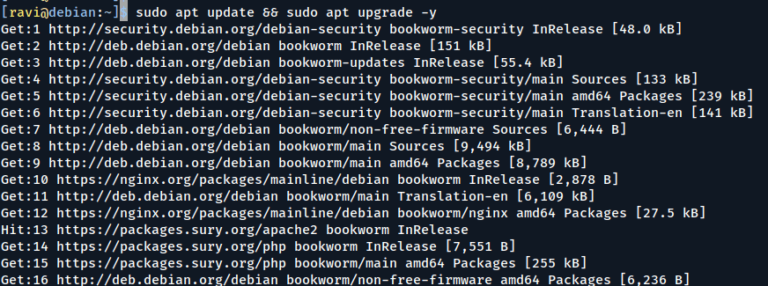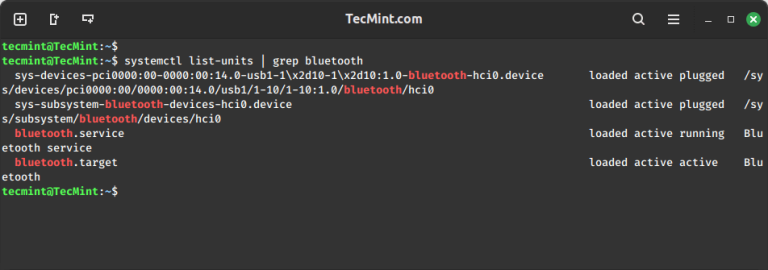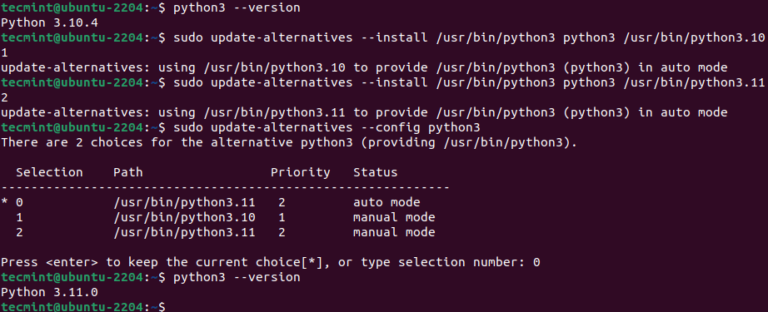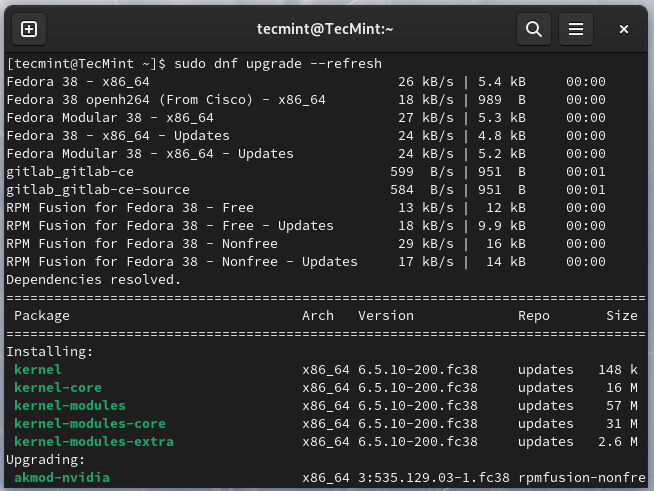
When creating a WordPress website, your first task is to find a quality web host. There are countless options available, however, which can make it difficult to know where to start. With so many different hosting providers and plans to choose from, it can be frustrating to find one that’s right for you and your site.
Fortunately, WordPress hosting doesn’t have to be a headache. The first thing you need to do is understand what your site’s needs are, and what a top-notch hosting plan should offer. As long as you know that, it won’t be hard to sort through the available options and narrow them down.
In this article, we’ll discuss the basics of web hosting by introducing the different types that are available. We’ll also discuss why you should consider using a WordPress-specific hosting plan, and show you how to find one that’s right for you. Let’s begin!
An Introduction to Website Hosting
One of the first and most important decisions you’ll make when building a website is picking the right web host. Put simply, a web host is a company that stores your site and makes it available online. It does this by providing you access to one of its servers, which is where your site ‘lives’. When a user accesses your site, their browser creates a connection to that server, so all your site’s files and content can be delivered successfully.
This is how almost all web hosting works in a general sense. However, there are several different types of hosting you can choose from. Which one you pick depends on a number of factors, such as your site’s purpose and requirements, as well as your budget and expected growth.
Here are the three main kinds of hosting you can opt for:
- Shared hosting. This is the cheapest option, but comes with some notable drawbacks. When using shared hosting, you’ll use the same server as several other sites. This means you’re all sharing that server’s resources. So a technical issue with one site (or unexpected amounts of traffic) can negatively affect the others.
- Virtual Private Server (VPS) hosting. This is a more powerful, secure, and private alternative to shared hosting, where you get access to a virtually partitioned section of a server. That means your site isn’t at risk of being affected by issues that stem from your neighboring sites, and you’ll benefit from a reliable amount of server resources. VPS hosting is also scalable. In other words, you can easily increase or decrease the resources you’re using, enabling you to grow your site over time.
- Dedicated hosting. When you use dedicated hosting, you get a physical server that is exclusively used by your site. You’re also typically able to configure this server directly, giving you more control over the technical aspects of your site. This option is ideal for large businesses, such as sites that sees up to 100,000 visits per month, since it’s both more powerful and more expensive.
In addition to these basic varieties, hosting can also be managed or unmanaged. Managed hosting means that the provider takes care of some essential tasks for you. For example, a managed plan might include services such as extended security, automatic WordPress updates, and technical maintenance. In contrast, unmanaged hosting is a more bare-bones option, if you want to take care of each aspect of running your site on your own.
What You’ll Need to Consider When Choosing a Web Host and Plan
When looking for a hosting plan, your first consideration should be what your site is likely to need. This will obviously vary depending on its purpose and type. A simple blog won’t require as many resources and as much upkeep as a thriving e-commerce site, for instance. However, there are a number of general requirements that every site owner needs to bear in mind when picking out hosting.
First and foremost, your host needs to be secure. Poor security can be devastating to even smaller sites, as it could lead to hackers or bots getting access to your sensitive data or infecting your site with malware. This could result in a significant blow to your bottom line and user trust.
As such, you need to find a web host that offers an excellent security package. Ideally, you’ll want one that provides protection against spam, malware, and other common attacks. It should also have a system in place to notify you immediately when your site is experiencing downtime.
In addition, you’ll want to pick a host that offers reliable, fast speeds at all times. This is because your site’s loading times can have a huge impact on your conversions and bounce rates. In fact, nearly half of all internet users expect a site to fully load in less than 2 seconds. Speed is also an important factor when it comes to optimizing your site for search engines like Google.
Finally, you should look for hosts that offer additional features alongside just hosting your site. Some plans will come with pre-installed plugins included, or offer a simple one-click WordPress installation feature. This makes the process of starting up your site much easier, and will save you time in the long term. For example, sites hosted by WPWebHost have the Jetpack plugin pre-installed, which contains a variety of useful features such as additional security, speed optimization, and visitor analytics.
Why You Should Consider Managed WordPress Hosting
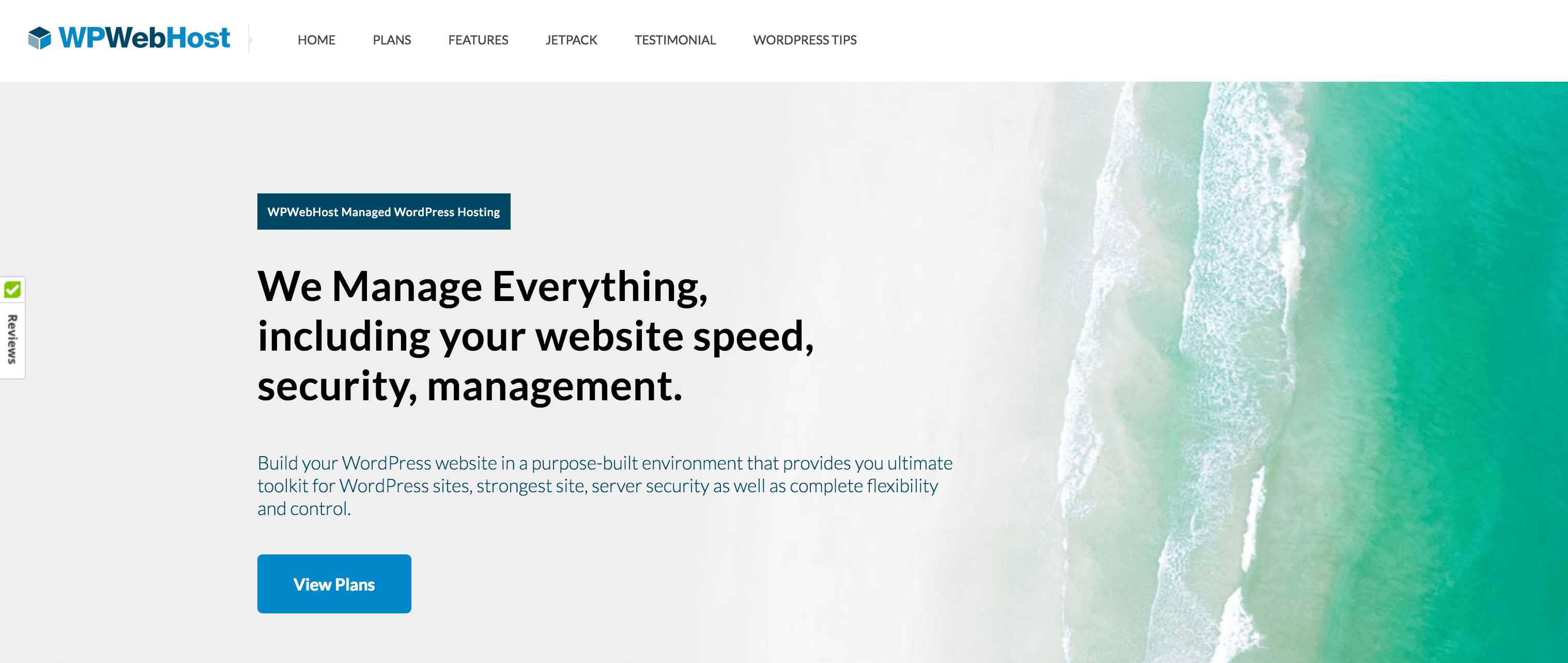
It’s time to look more closely at one type of hosting that can provide all of the features and perks we’ve discussed so far. We’re talking about managed WordPress hosting. As you can probably guess from the name, this type of managed hosting is specific to WordPress sites.
There are a number of benefits to this kind of hosting plan. Here are just a few:
- Using WordPress hosting guarantees that your provider meets all of WordPress’ requirements.
- It ensures that your site is always updated when a new version of WordPress is released.
- Your hosting plan will be tailored towards WordPress in every aspect, which ensures maximum scalability and compatibility.
- Installing and managing WordPress is made much easier.
- Using a managed plan means that your host will take care of many basic tasks for you, such as implementing caching solutions and security monitoring.
- Many managed WordPress hosting plans include additional premium plugins, such as Jetpack Professional.
- You also get access to dedicated support teams that are specialized in WordPress.
If this sounds exciting, you should consider taking a look at the managed plans we offer here at WPWebHost. You can choose between shared, semi-shared, and dedicated hosting. This is a great way to ensure that your WordPress site will be fast, reliable, and simple to maintain.
Conclusion
Creating a website often involves delving into some unfamiliar topics. One example is web hosting, which can be confusing and frustrating if you don’t know what you’re looking for. You need somewhere for your site to live, however, and it’s important to pick a provider and plan that fully meet your needs.
In this article, we’ve looked at exactly what you need to consider when browsing for a suitable web host. You need one that is secure, offers solid performance, provides plenty of support, and ideally takes care of many WordPress-related tasks for you. This will clear up your time to focus on your site and its content.
Do you have any questions about how to choose the right WordPress hosting plan? Let us know in the comments section below!
Image credit: Pixabay.
